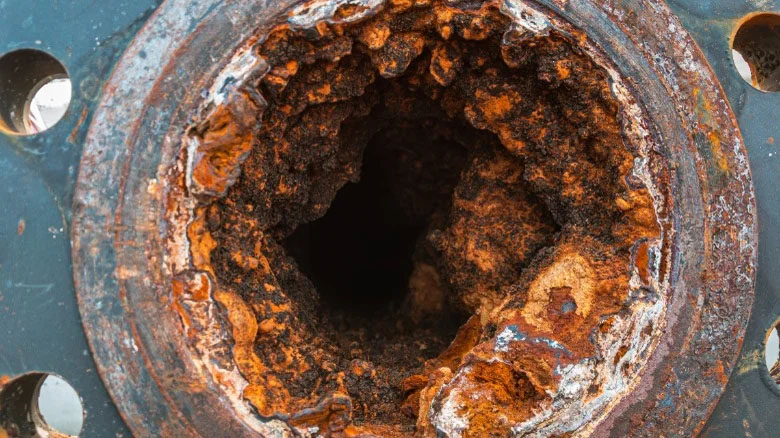If you’re tired of dealing with hard water and its associated problems, it may be time to invest in a water softener. Hard water can cause a range of issues, from clogged pipes and stained fixtures in your home to dry skin and hair. By installing a water softener, you can remove the minerals that cause hardness and enjoy softer, better-tasting water throughout your home. In this article, we’ll explore some of the top reasons why you should invest in a water softener for your home.
What is Hard Water?
Before diving into the benefits of water softeners, it’s important to understand what hard water is and how it differs from soft water. Water that contains high levels of mineral deposits like calcium, magnesium, and iron are generally considered as hard water. These minerals can come from natural sources like underground wells or from the pipes and plumbing in your home. Soft water, on the other hand, has low or no levels of these minerals.
Problems with Hard Water
Hard water can cause a range of problems throughout your home. For starters, it can leave behind mineral deposits on your pipes, appliances, and fixtures, leading to clogs and decreased water flow. It can also stain your clothes, dishes, and other surfaces with unsightly white or brown spots. In addition, hard water can dry out your skin and hair, making it more difficult to lather soap and shampoo and leading to irritation and discomfort.
Benefits of Water Softeners
Now that we’ve covered some of the problems associated with hard water, let’s explore the benefits of water softeners. One of the primary benefits is that they remove the minerals that cause hardness, resulting in softer water that is easier on your skin and hair. This can also extend the life of your plumbing and appliances by reducing the buildup of mineral deposits. Soft water can also save you money on detergent and soap, as it lathers more easily and requires less product to achieve the same cleaning power.
Better-Tasting Water
In addition to the benefits listed above, water softeners can also improve the taste of your drinking water. Hard water can have a metallic or bitter taste, which can be unpleasant for many people. By removing the minerals that cause hardness, a water softener can make your water taste fresher and cleaner.
Environmental Benefits
Another benefit of investing in a water softener is the positive impact it can have on the environment. Soft water requires less energy and fewer resources to heat, as it doesn’t have to overcome the resistance of mineral build-up. Having a water softener could lead to a reduced carbon footprint and energy bills which are substantially lower. Soft water also reduces the amount of soap and detergent that goes down the drain, which can be beneficial for local waterways and ecosystems.
Health Benefits
Soft water not only feels better on your skin and hair, but it can also have health benefits. Hard water can cause dry, itchy skin and exacerbate conditions like eczema and psoriasis. By using soft water, you can reduce irritation and improve the overall health of your skin. Soft water can also help to prevent the buildup of minerals in your body, which has been linked to health issues like kidney stones and heart disease.
Cost Considerations
While the benefits of water softeners are clear, it’s important to consider the cost of installation and maintenance. Water softeners can range in price depending on the type and size you choose, as well as the cost of installation. However, many homeowners find that the cost of Culligan water softener is well worth the investment, as it can save money in the long run on plumbing repairs, cleaning products, and energy bills.
Choosing the Right Water Softener
There are a few factors in which you should consider before purchasing your very own water softener. The first is the size of your household and the level of water hardness in your area. A professional can help you determine the right size and capacity for your home. You’ll also want to consider the type of water softener you want, such as a salt-based or salt-free system. Salt-based systems use salt to remove minerals, while salt-free systems use a different process to neutralize minerals.
Professional Installation
Once you’ve chosen the right water softener for your home, it’s important to have it professionally installed. This ensures that the system is set up correctly and is working efficiently. A professional can also provide guidance on maintenance and upkeep to ensure that your water softener continues to function properly over time.
Final Thoughts
Investing in a water softener is a smart decision for homeowners who want to improve the quality of their water and reduce the negative effects of hard water. With softer water, you’ll enjoy better-tasting water, healthier skin and hair, and reduced costs on cleaning products and energy bills. By choosing the right water softener and having it professionally installed, you can enjoy these benefits for years to come.
In conclusion, the benefits of investing in a water softener are numerous and can greatly improve your quality of life. From reducing clogs and stains to improving the health of your skin and the taste of your water, a water softener is a wise investment for any homeowner. While there may be some upfront costs associated with installation, the long-term benefits make it well worth the investment. Consider contacting a professional to learn more about the best water softener options for your home and start enjoying the benefits of soft water today.

